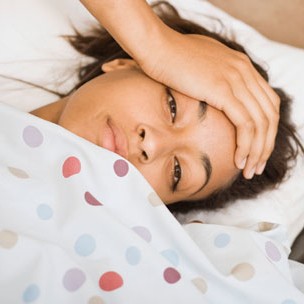‘You won’t feel yourself again for a while,’ the consultant said, discharging me after I’d spent four days in hospital with a kidney infection. ‘So, take it easy, do as little as possible, look after yourself and let your body recover.’
These were almost the same words uttered a few months earlier after I’d had a nasty bout of pneumonia. My husband suggested failing to heed those words the first time was why I was back in hospital.
He thought I’d never recovered properly from the first infection, leaving me vulnerable to another, and, much as I hate to admit it, he was probably right. It certainly makes sense medically, I learned.
Pneumonia is caused by bacteria that cause inflammation and damage to the insides of the lungs, and a seven-day course of antibiotics is usually enough to kill the bacteria, explains Dr Angshu Bhowmik, a consultant in respiratory and general medicine at Homerton University Hospital, London.
“However, antibiotics do not repair the inflammation and damage. It takes anything from a week to several months for the X-ray to come back to normal after a bout of pneumonia. During this time, people will not be back at ‘normal’ health and this may indicate the time frame of convalescence.”
In other words, I should have spent several weeks taking it easy.
Instead, as soon as the antibiotics kicked in and the pain and difficulty breathing began to ease, I was up at the crack of dawn making packed lunches before driving the children to various pre-school activities, then trying to cram in a full day’s work.
Convalescence is defined as ‘a gradual return to health’ after sickness or injury. There was nothing gradual about the way I immersed myself back into my regular routine. And while the antibiotics prescribed had begun to kill the bacteria that caused the damage to my lungs, making me feel less dreadful, my lungs were still inflamed and I was not fully recovered.
If I’d been the heroine of one of the Victorian novels I devoured as a child, I’d have still been lying in a lace nightdress, reading poetry and sipping broth overlooking the sea, allowing my body a gradual recovery, rather than throwing it in at the deep end and expecting it to cope.
Convalescence is a lost art in this country. We juggle work and family, and having it all invariably means trying to do more than we are able. If we fall ill, pressure on hospital beds means we are discharged as soon as possible.
In Germany and other European countries, convalescent homes still exist and hospital patients are not always discharged straight home, but often to places where the focus is on rest and recovery.
A friend here was home within two days of having a mastectomy. A former colleague who had the same surgery in Germany spent six weeks in convalescence gradually regaining her strength.
“It’s partly down to modern medicine, which gave us ‘instant’ cures – antibiotics and other drugs that got people well enough to be up and about within days. These changed our perception of illness – wrongly, according to Dr Thomas Stuttaford, a medical writer and GP who has practised for more than 50 years.
“Drugs cut down the acute phase of an illness, but they should not cut down the convalescence phase. In the Forties, if you had a serious infection, you’d have been kept in hospital for ten days or a fortnight.”
“Now you are discharged as soon as you are out of danger, rather than when you are well. Your immune system doesn’t have time to recover and you could be more vulnerable to getting ill again.”
Dr Suranjith Seneviratne, an immunologist at the Royal Free Hospital, in North London, likens the immune system to a military unit – and like a military unit, it needs time to recuperate after heavy action.
“Imagine an infection as a terrorist attack on part of your body. The cells required to deal with the attack suddenly rush to that location and fight the infection. If you don’t rest afterwards, those cells, rather than returning to base camp ready to fight another attack, are still busy, so if you’re exposed to another bacteria or virus you may not be ready to fight it as effectively.”
However getting the rest you need is also up to you, as the patient. When I left hospital my doctor insisted I rest, saying he’d write me a letter, so I could take time off work.
‘I work from home,’ I replied, realising as I said it that the biggest obstacle to resting was probably myself. My idea of relaxing is going for a brisk walk. Lunch is a grabbed sandwich, if there’s time, and working from home my computer is always beckoning.
Two days after I left hospital, there was a press launch in the evening and I had promised to have lunch with a friend. I just about fit that in between work and doing the school run.
But, by 6pm, I was shattered and the children needed supper. Suddenly I realised I needed to convalesce and slow down. So I cancelled meetings and let friends have the children after school. I napped after lunch. I had lunch!
Three weeks later, I went back for tests – my kidneys were functioning normally again. “How do you feel?” the doctor asked.
“Much better,” I answered.
Perhaps in the long run the illness had been good for me. It forced me to learn the value of convalescence, and to stop pushing my body beyond its limit.
– Lizzie Enfield





